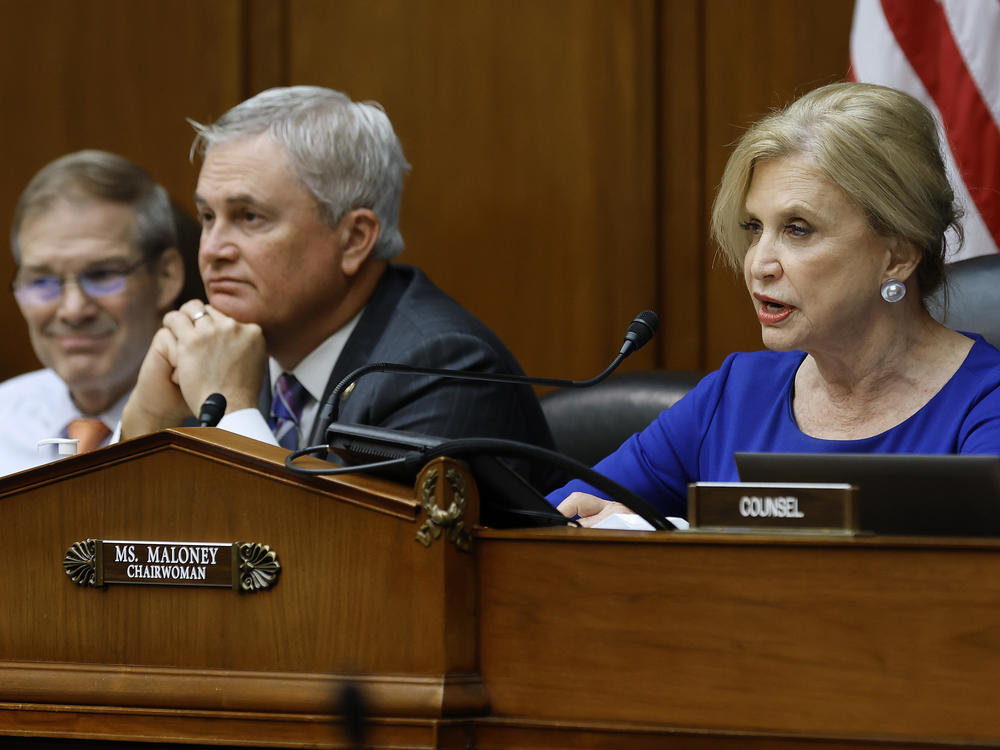Section Branding
Header Content
Commanders owner launched a 'shadow investigation' to detract from probe, says panel
Primary Content
Washington Commanders owner Daniel Snyder launched a "shadow investigation" to ultimately detract from another internal investigation into the team's reported toxic workplace, according to findings by the U.S. House Committee on Oversight and Reform.
In a memo shared by Rep. Carolyn Maloney, D-N.Y., the committee said that Synder built a "dossier" meant to discredit those who had come forward with allegations of harassment in the Commanders organization.
"In addition to deploying private investigators, Mr. Snyder abused the subpoena power of federal courts to obtain private emails, call logs, and communications in an effort to uncover the sources of the Washington Post's exposés, undermine their credibility, and impugn their motives," the memo said.
Synder's work alongside his team of lawyers was meant to "discredit his accusers in the eyes of the NFL and offer up an alternative target for the investigation."
The initial findings of the committee were released Wednesday ahead of a hearing about the football team's workplace during which NFL Commissioner Roger Goodell testified.
Findings from the committee allege that Synder and the Commanders, along with the NFL, worked to make sure that the findings of the investigation led by D.C. attorney Beth Wilkinson were not released.
Goodell said in his testimony that the NFL had not received a written copy of Wilkinson's report, but, according to the committee investigation, the league "was briefed on the Wilkinson Investigation's findings 16 times—including at least two personal briefings for NFL Commissioner Roger Goodell and four briefings submitted in writing."
Those findings have not been made public.
Part of Snyder's efforts to find an alternative person to blame for the culture of the organization can likely be attributed to a desire to conceal his own behavior and impact, the committee said.
Snyder's refusal to take action against a coach who was accused of groping a public relations employee, and the decision to fire two cheerleaders who had engaged in consensual relationships with former tight end Chris Cooley, who did not face any repercussions, were two examples given by former chief operating officer David Pauken that were cited in the report.
But they are far from the only allegations of misconduct that Snyder has faced.
In February, former cheerleader and marketing manager Tiffani Johnston said during a roundtable focused on toxic workplace culture that during a work dinner Snyder had placed his hand on her thigh underneath a table.
Johnston added that later that night, Snyder placed his hand on her lower back and tried to aggressively direct her into his limo before Snyder's attorney intervened. Johnston said that at the time of the incident a senior coworker told her not to report it.
How the organization handles allegations of misconduct came into focus in 2020 after The Washington Post published exposes featuring interviews with former team employees who recounted the inappropriate and toxic environment they were subjected to during their tenure.
Copyright 2022 NPR. To see more, visit https://www.npr.org.


